Глава американской истории площадью 1600 акров выставлена на продажу в горах Катскилл, где обширное поместье, которое на протяжении более 200 лет принадлежало одной и той же известной семье, только что появилось на рынке за $14 миллионов.
В самом сердце поместья находится Дом у озера, построенный в 1787 году Гертрудой Ливингстон и ее мужем, полковником Морганом Льюисом — генералом времен Войны за независимость, губернатором Нью-Йорка и доверенным лицом Вашингтона и Гамильтона, который построил оригинальный дом сразу после войны.
Дом у озера — один из старейших сохранившихся домов в округе Делавэр. В этом доме жили поколения семьи Ливингстон-Льюис, среди членов которой были люди, подписавшие Декларацию независимости, влиятельные государственные деятели и законодатели вкуса Золотого века.
За главным домом простираются луга и реликтовый лес с обширными видами на горы. На территории поместья сохранились остатки амбициозных загородных поместий, связанных с именами выдающихся дизайнеров и ландшафтных архитекторов Позолоченного века и начала XX века.
Нравится контент Fancy Pants Homes? Обязательно подписывайтесь на нас в MSN
Краткий обзор: более 1600 акров, 9 спален, 10 ванных комнат, 6 каминов
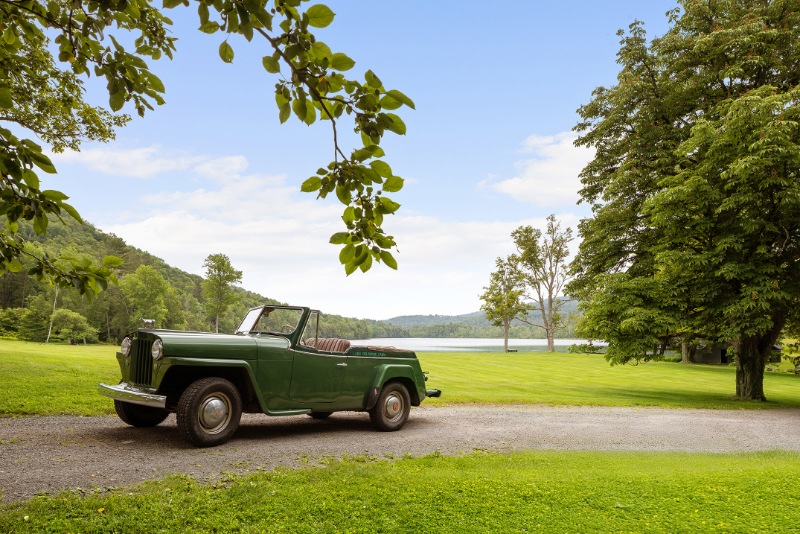
Выставлен на продажу за $14,000,000 Норой Берден и Оуэном Дэвидсоном из Brown Harris Stevens, собственность включает в себя главный дом с 19 комнатами, девятью спальнями, 10 ванными комнатами и шестью дровяными каминами.
Построенный в 1787 году, он расположен на берегу озера площадью 68 акров. К нему ведет длинная подъездная дорога с историческими каменными стенами. В числе удобств — лифт, гараж, амбары/хозяйственные постройки, исторический эллинг, и обширные территории.
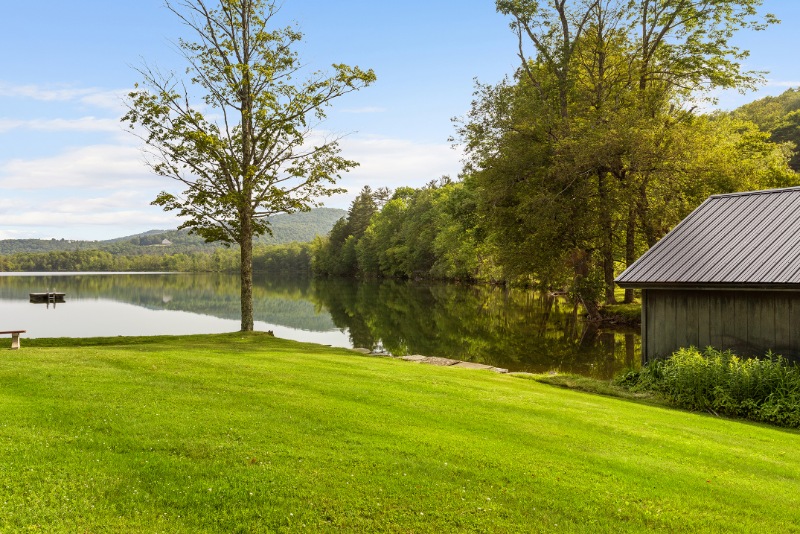
Дом у озера (1787) и его классический облик
Оригинальный фасад представляет собой портик во всю длину с четырьмя двухъярусными дорическими колоннами, гладким антаблементом и тремя характерными бочкообразными карнизами, обрамляющими окна второго этажа. Мансардные окна подчеркивают линию крыши, намекая на наличие мансардного помещения внутри.
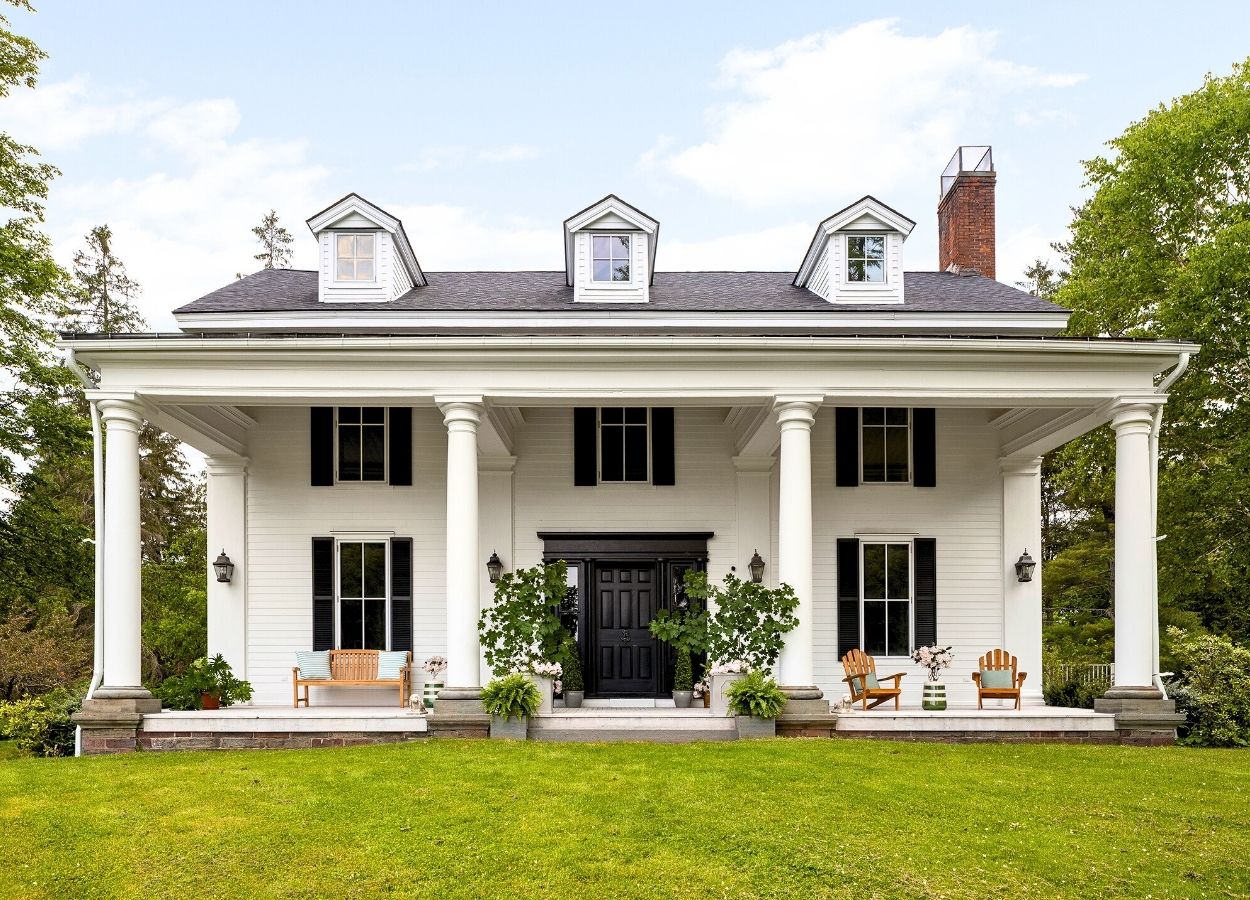
Центральный зал с резной винтовой лестницей
Внутри традиционный центральный зал с винтовой лестницей, украшенной резьбой ручной работы, завершает планировку. Зал выходит в две залитые солнцем гостиные XVIII века, сохранившие масштаб и пропорции периода, создавая формальные и неформальные помещения, которые впоследствии трансформируются в пристройки.
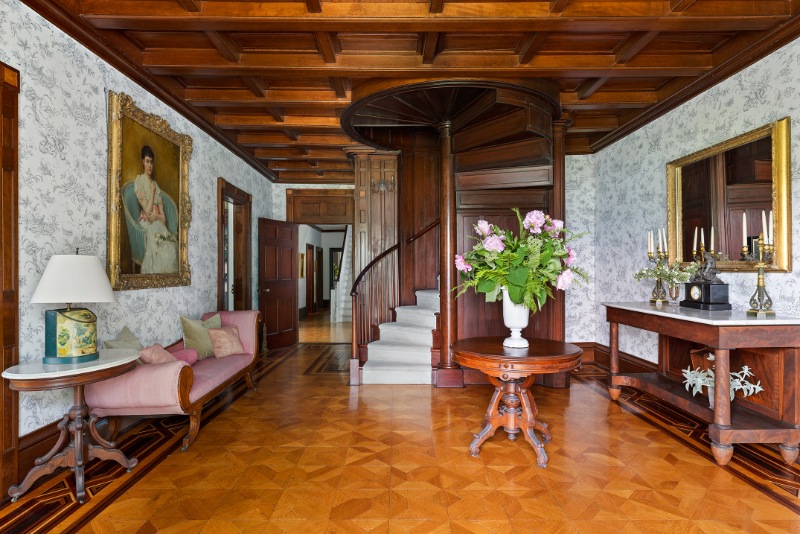
Жилые помещения, расположенные на протяжении веков
Расширения девятнадцатого века увеличили площадь и детали: панели и потолочный ажур в столовой, мраморные каминные полки, оригинальные молдинги и замысловатые инкрустированные полыВ результате получился ряд комнат, подходящих для больших собраний, но при этом сохранивших ясность первоначального облика дома.
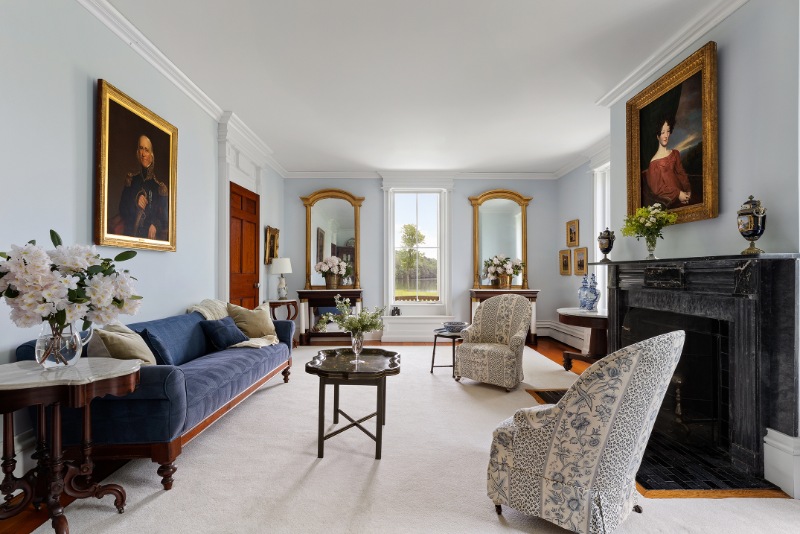
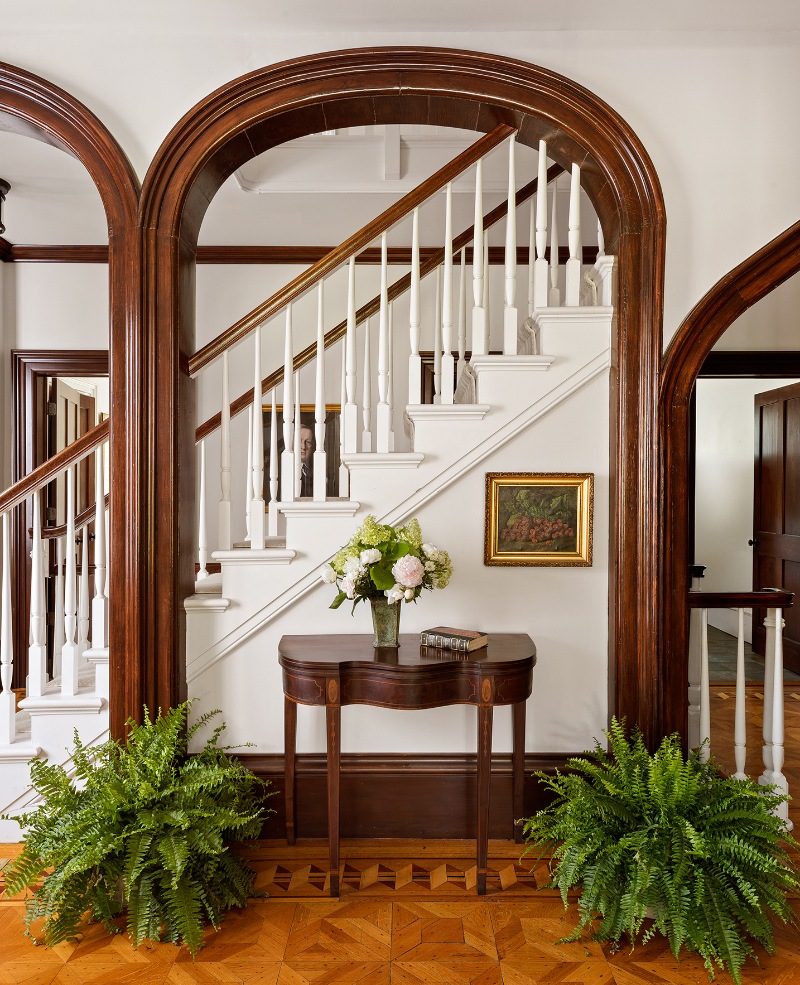
Кухня, служебные и обеденные зоны, а также повседневные функции
Большая кухня-столовая совмещена с семейной комнатой, кладовой дворецкого, прихожей, прачечной и баром. Большая задняя лестница, обрамлённая арочными проёмами, облегчает перемещение, а лифт обслуживает этаж со спальней для удобного доступа.
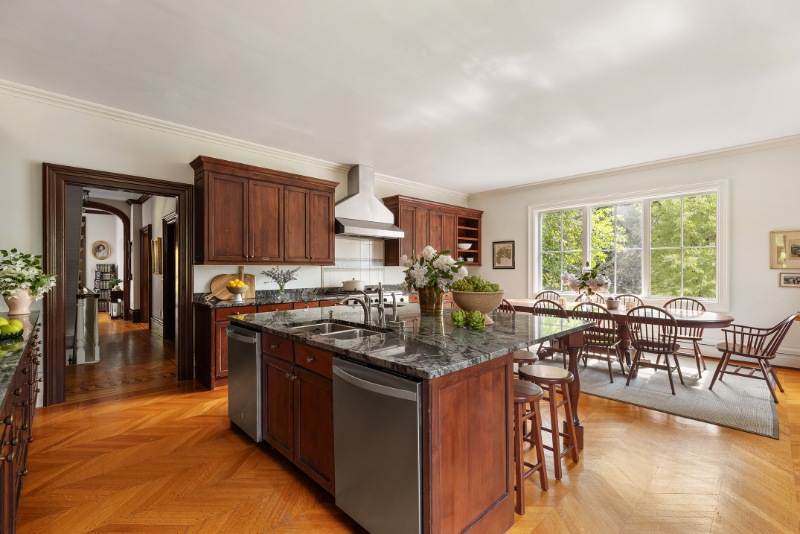
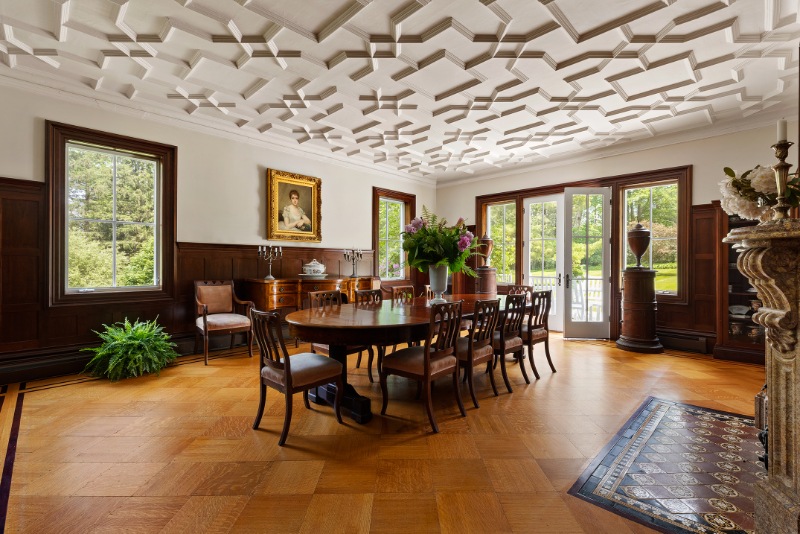
Спальни для толпы
Восемь больших спален с собственными ванными комнатами. Наверху, на чердаке, расположена комната с двухъярусными кроватями, которая обеспечивает дополнительное пространство и собственную ванную комнату с двумя душами и раковинами — идеальное место для отдыха, встреч выпускников или походов.
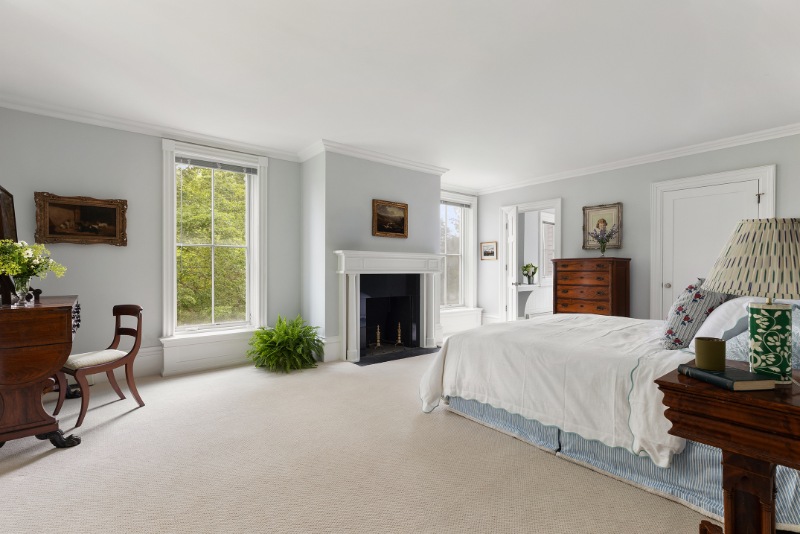
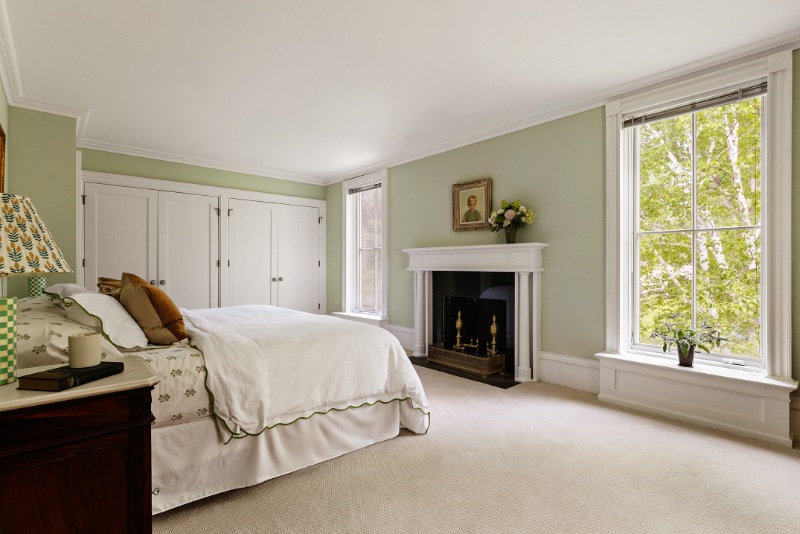
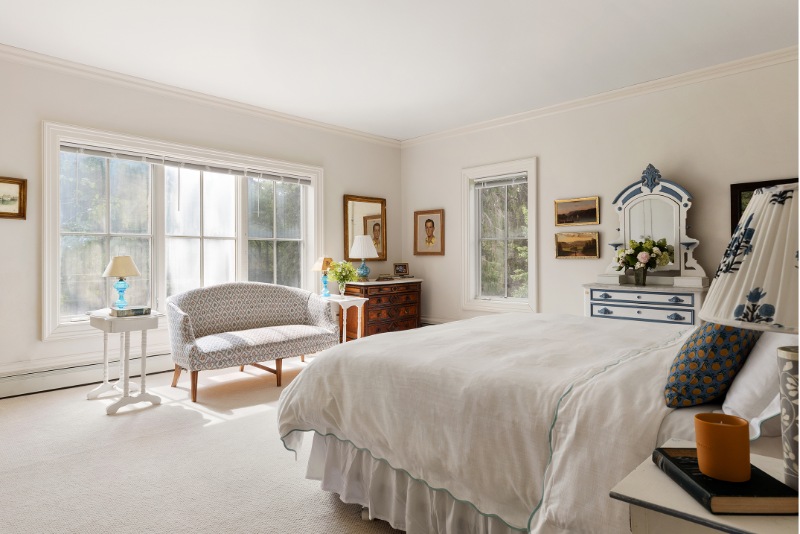
Шесть действующих каминов
Благодаря шести дровяным каминам, расположенным в главных комнатах, дом воспринимается как настоящая загородная резиденция, предлагая несколько очагов для сезонного проживания и просторные пространства для встреч.
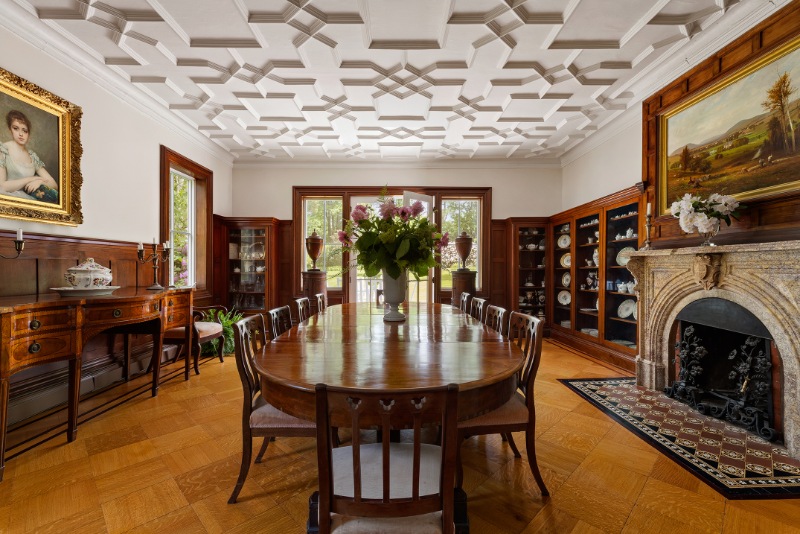
Частное озеро площадью 68 акров с историческим лодочным домиком
Лужайка спускается к озеру Делавэр, известному своей холодной, чистой водой и прекрасным видом на окружающие холмы. В историческом эллинге можно поплавать и заняться греблей, а береговая линия предлагает удобную площадку для пикников или тихих утренних посиделок на причале.
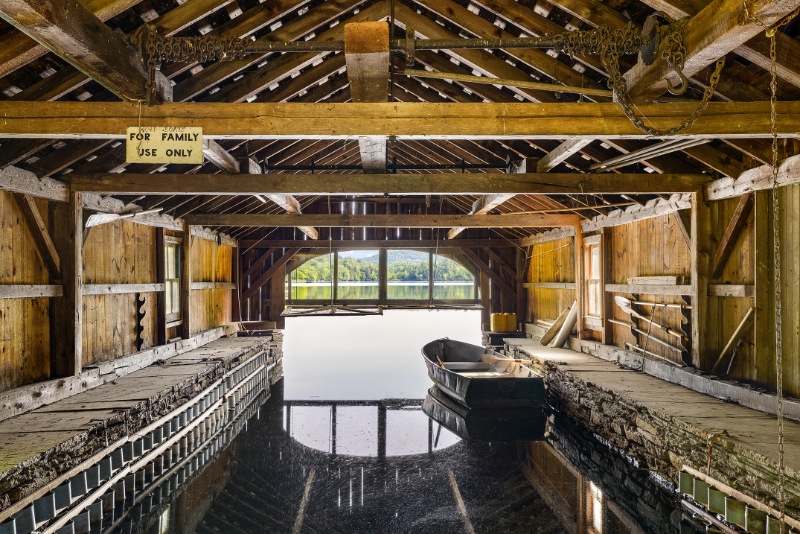
Подъезд и хозяйственные постройки
Извилистая подъездная дорога вьётся мимо каменных стен и стоящих камней, изредка прерываемых изящными железными воротами. Вдоль дороги перед домом выстроились амбары и другие хозяйственные постройки, а с вершины холма открывается вид на озеро.
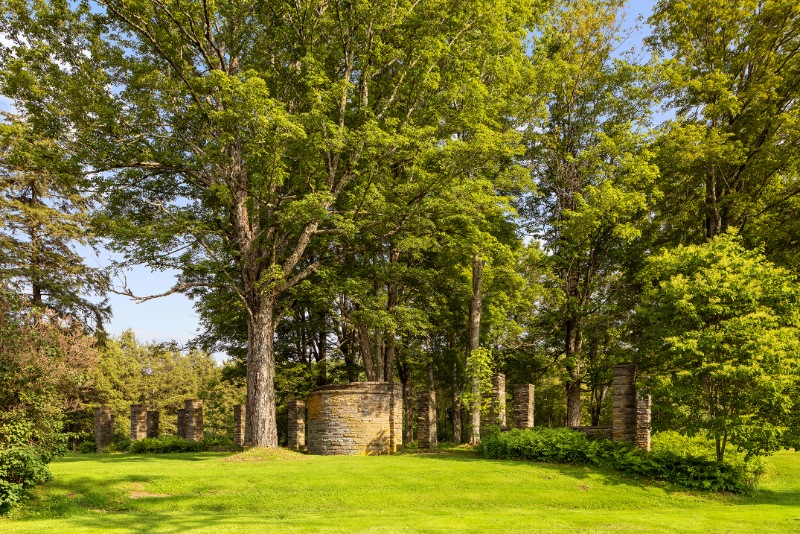
Окрестности дома
На другом берегу реки расположен Акнусти, особняк в георгианском стиле, исторически связанный с семьей. Проект резиденции разработал архитектор Томас Гастингс, а за благоустройством территории отвечала фирма Фредерика Лоу Олмстеда — непреходящий символ амбиций в области недвижимости в регионе начала XX века.
Другой бывший семейный участок, Анкрам, когда-то принадлежал усадьба в английском стиле с изысканными садами, созданными Флетчером Стилом. Дом исчез, но сохранились структурные элементы сада, а также статуя сидящей Дианы — достопримечательности, которые приглашают к исследованию и реставрации.
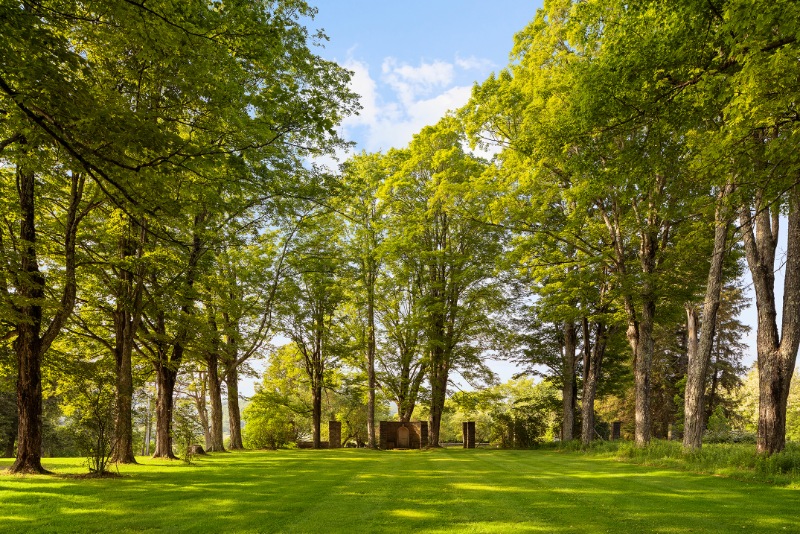
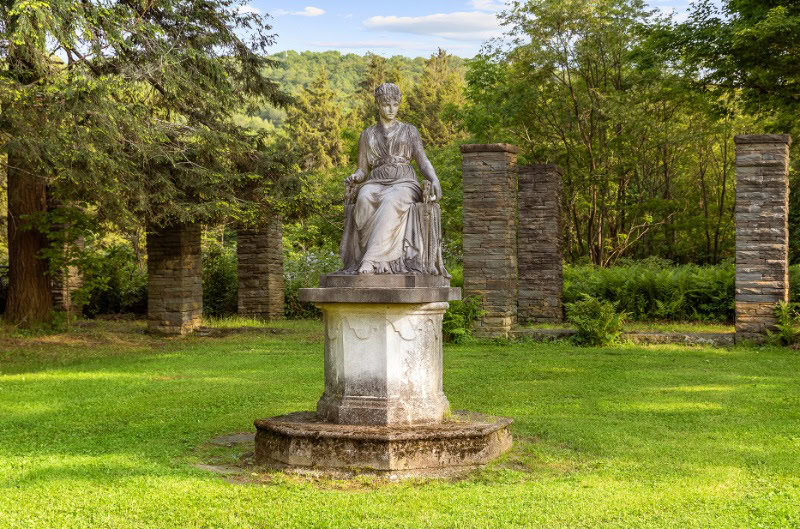
Масштаб ландшафта и горный воздух
Поместье простирается среди лугов, открытых видов и вековых лесов Дели и Бовины. Его возвышенная долина обеспечивает более прохладные летние температуры и открывает обширные виды на вершины Катскилла.
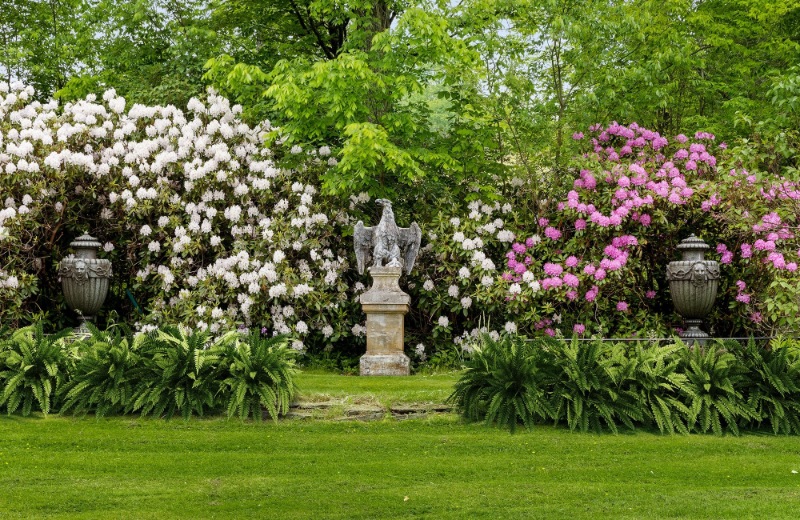
Архитектурные детали, заслуживающие внимания
История этого объекта недвижимости тесно связана с историей долины Гудзона: Роберт Ливингстон стал лордом поместья Ливингстон в 1686 году; позже семья приобрела часть патента Харденбергов. Гертруда Ливингстон унаследовала 20 000 акров земли в горах Катскилл, и они с полковником Льюисом выбрали озеро Делавэр своей летней резиденцией.
Таким образом, дом имеет уникальные дополнения, такие как неукрашенный карниз вдоль портика, необычные наклонные свесы под окнами второго этажа и мансардные окна на чердаке, намекающие на спальные помещения наверху, — детали той эпохи, которые остаются заметными, даже несмотря на то, что более поздние улучшения добавили комфорта.
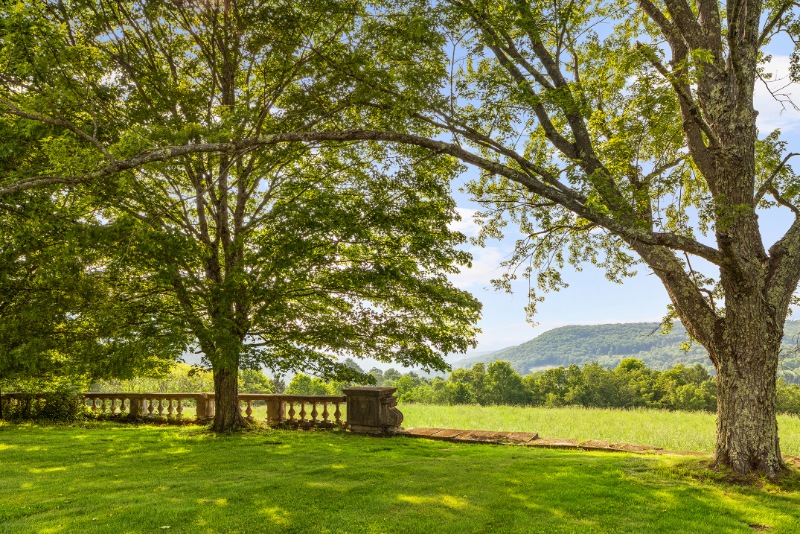
Обширные территории с множеством потенциальных вариантов использования
Площадь более 1600 акров подходит для частного жилого комплекса, управления, заботящегося об охране природы, или возрождения сельского хозяйства и конного спорта. Тропы, пастбища и леса создают разнообразные возможности для сезонного отдыха.
Поместье расположено в непосредственной близости от городов Катскилл, известных своими рынками и небольшими ресторанами, однако прилегающая территория и частное озеро создают изолированную среду — редкое явление такого размера в регионе.
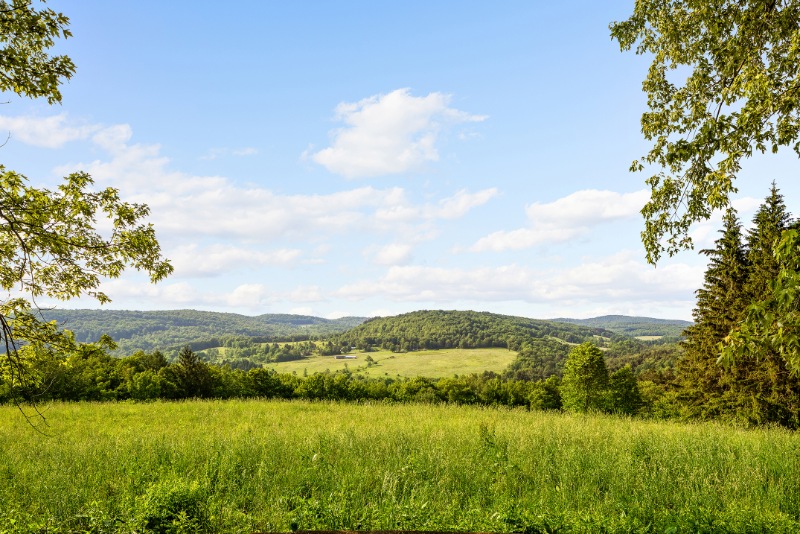
Больше историй
Этот плавучий фермерский дом в горах Катскилл был построен в 1820-х годах, но вы никогда не скажете,
Роскошный загородный дом площадью 31 акр перенесет вас в Золотой век гор Катскилл.
Пост Объект недвижимости $14M Catskills охватывает более 1600 акров и двухвековую историю семьи. впервые появился на Дома с модными брюками.